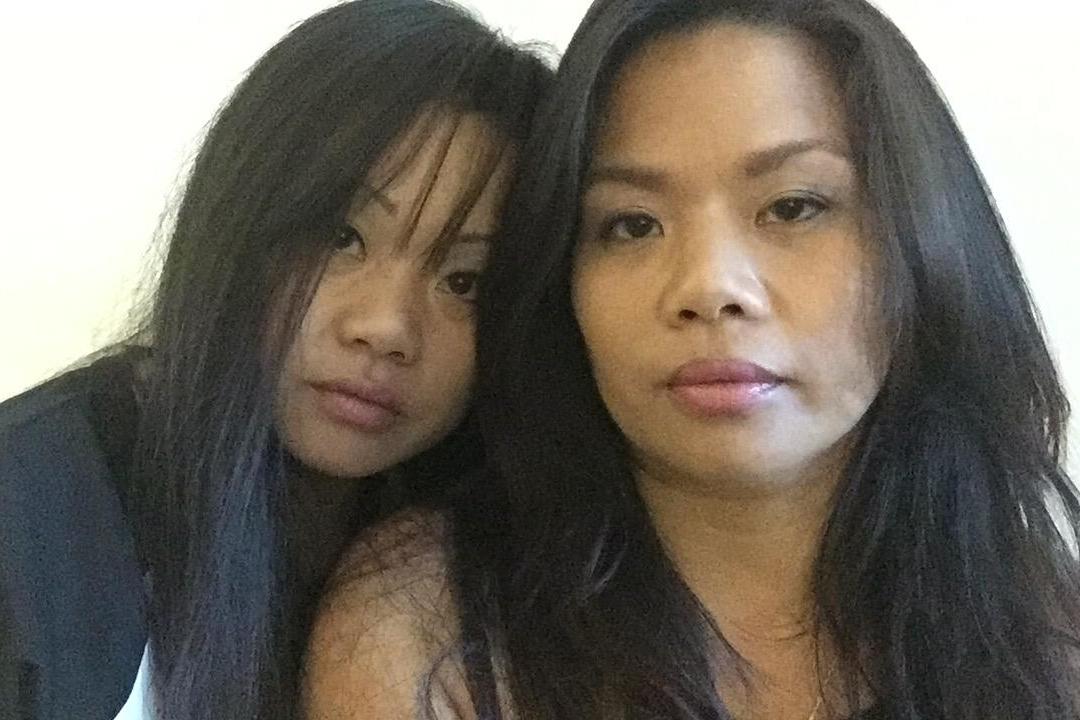‘It’s completely broken me down’: The identical twins who lost their identities to an NHS error
Exclusive: How an administrative mistake left two sisters with the same NHS number – depriving them of vital healthcare and trapping them in a bureaucratic maze with no exit

Ten years ago, identical twins Adah and Anah Bermudez were both in dire need of medical help – but neither could get a doctor to see them.
Adah claims she was attacked at her home in Harrow, northwest London, and needed treatment for the injuries she had reportedly suffered to her right arm and shoulder.
Twelve miles away, in Barnet, Anah was succumbing to a breakdown, and was in desperate need of mental health support.
But their GPs refused to give them appointments, explaining that they had been “struck off” because they had registered elsewhere – at each other’s doctor’s surgeries.
It was the first time that what is believed to have been a simple administration error made when they were born had come to light that was to have a devastating impact on both their lives.
Somehow, both sisters, now 37, had been assigned the same NHS number – something that should be impossible, but once it had happened they found themselves trapped in a bureaucratic maze with no exits.
Every time they tried to explain the problem to the authorities, they were ignored.
“I said to them, I’ve got a twin sister. But they didn’t listen,” says Adah, who now lives in Mill Hill with her daughter, 12, and one-year-old son.
“They just said I couldn’t have an appointment. So if I had a problem, I started looking up how I could help myself. I would google treatments.”
Anah, who suffers with severe depression and borderline personality disorder, was meanwhile experiencing acute side effects as a result of not being able to get her medication.
“When I got really sick it was very bad. I was vomiting; I was shaking; I was sweating. It was like coming off methadone or something,” she remembers.
“I was outside the doctors crying but nobody would give me the medication. They said no because you’re not registered here, you’re registered somewhere else.
“They said I had been taken off their system and registered somewhere else: where Adah lives.”
The women sometimes managed to find ways around it. Adah would go to a walk-in clinic, but this meant long waits. Anah resorted to re-registering with the GP each time she needed an appointment – a cumbersome task that still left her without medication for days.
“I’d have to fill in the form and give it to them, and then I’d have to wait 48 hours until I could see a doctor or a nurse. That happened more than six times when I desperately needed it,” says Anah.
“It had a big impact on me. It’s been very stressful. Sometimes I’d think am I going crazy? Is it just me? I’d start doubting myself. It would mess everything up in my head.”
Things got worse when NHS staff reportedly started issuing them each other’s medication.
Adah says she was told to go on anti-depressants that had been prescribed to her sister. She refused, which in turn led to medical professionals assuming that she was failing to heed their advice.
“They were always questioning why I wasn’t on my medication. When I was pregnant in hospital, they were asking me why I came off my medication,” she says.
“I’m being questioned all the time. The way they look at you. It’s just horrible.”
Anah says letters meant for her regarding therapy appointments were sent to Adah instead, which led to authorities to penalise her for missing them.
“I was treated like it’s my fault,” she says.
They tried to resolve the issue. Adah says she spent hours trying to call numerous NHS helplines.
“All they would say is: ‘I can see the problem Ms Bermudez, but it’s private and confidential’,” she says. “Some of the phone calls weren’t free, so my bill was really high. I tried and tried but then gave up. I just didn’t bother going to the doctor anymore.”
And the problem continues to haunt the Bermudez twins today.
Last month, Adah phone the NHS 111 helpline due to bleeding following her baby’s birth, and was told they held no record of her on the system, but two for her sister.
“There’s always a mess-up somewhere. People don’t realise how much your identity in the database affects you. It’s completely broken me down.”
Anah is still suffering from the effects of routinely not receiving her medication when she needed it. She blames the mix-up for her poor mental health today, which she says often leaves her unable to leave the house.
“If I was given the right treatment and medication I don’t think I would be this sick today,” she says.
“If there wasn’t such a mix-up, I think I would’ve realised that I really do have a problem, I would have got the help that I needed, and realised that I really do need to deal with it properly. I can’t believe how the system has failed.”
When contacted by The Independent, a spokesperson for NHS Digital said they could not talk about individual cases, but said that “from time to time errors unfortunately occur”.
“These are most likely to happen where two patients have the same or very similar demographic information, particularly surname, date of birth and address,” they said.
“When a problem with patient records is reported to us, normally by a GP practice or other care provider organisation, a dedicated team investigates promptly to identify and rectify any issues with the records on the national systems for which we are responsible.
“We also work with other NHS organisations to notify them of actions we have taken so that they can check and correct their own records.”
Join our commenting forum
Join thought-provoking conversations, follow other Independent readers and see their replies
Comments